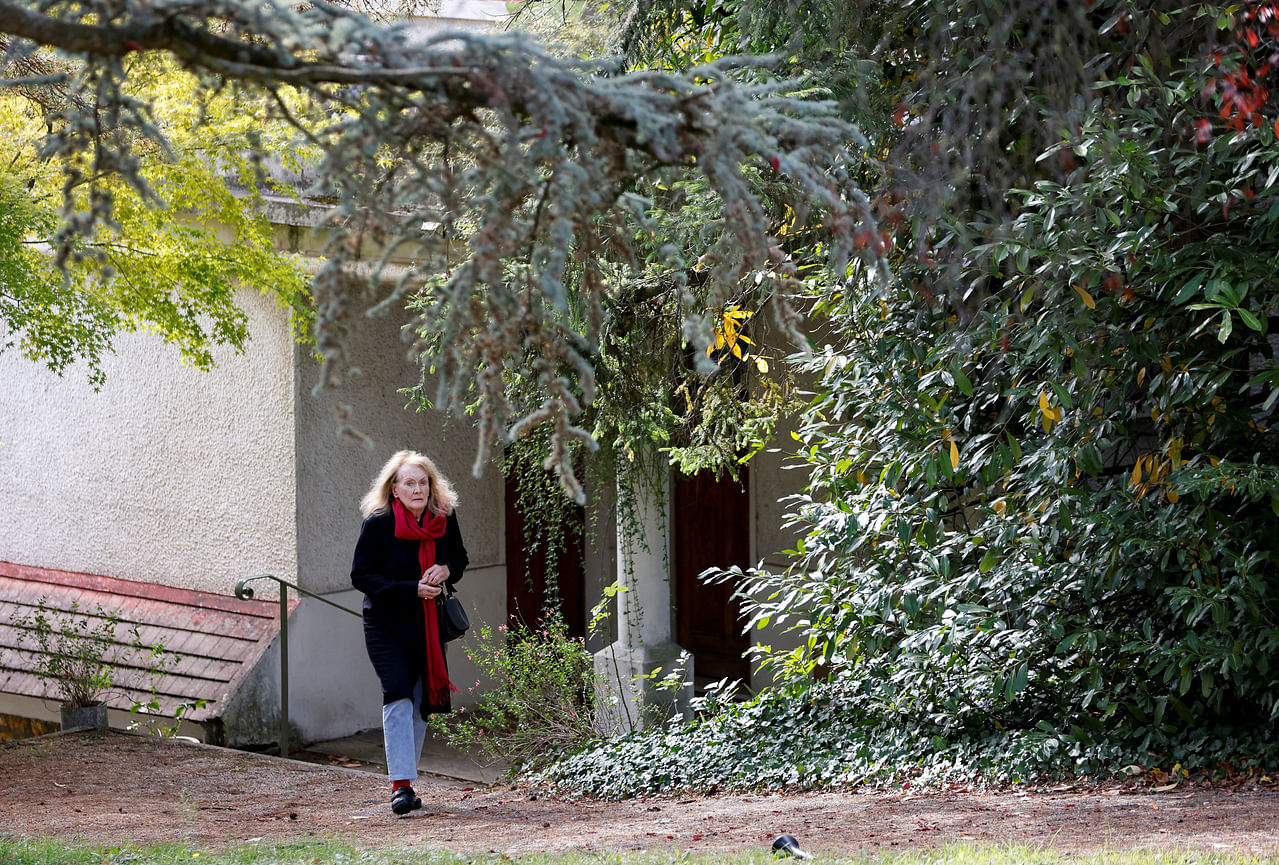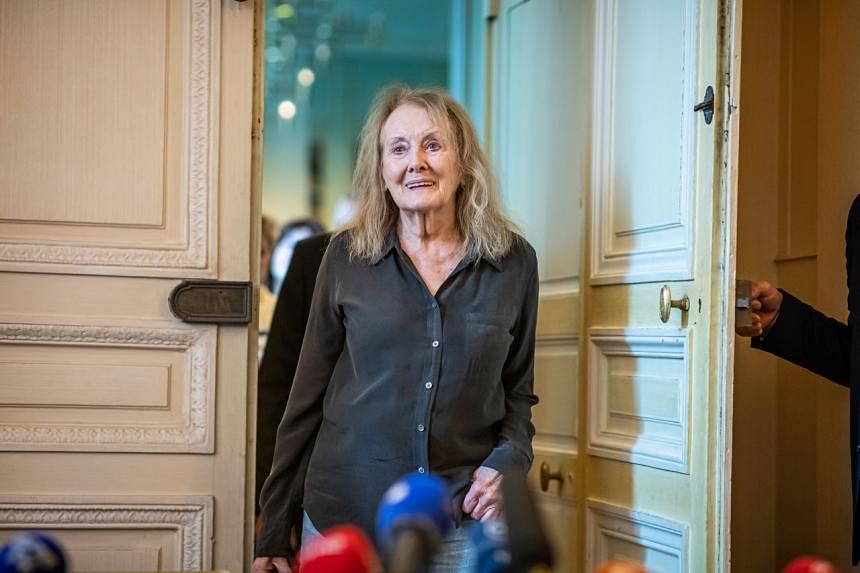STOCKHOLM - French author Annie Ernaux, known for her deceptively simple novels drawing on personal experience of class and gender, won the 2022 Nobel Literature Prize on Thursday.
She was honoured “for the courage and clinical acuity with which she uncovers the roots, estrangements and collective restraints of personal memory”.
Ernaux, whose work is mostly autobiographical, is 82.
In explaining its choice, the Swedish Academy said Ernaux “consistently, and from different angles, examines a life marked by strong disparities regarding gender, language and class”.
“I was very surprised… I never thought it would be on my landscape as a writer,” Ernaux told Swedish broadcaster SVT. “It is a great responsibility… to testify, not necessarily in terms of my writing, but to testify with accuracy and justice in relation to the world.”
Grit in the oyster
Over some 20 books – many of which have been school texts in France for decades – she has unsparingly examined one of the country’s great taboos – class – often through the prism of her own life.
In so doing, she has become a trailblazer for a whole generation of French writers from tough and immigrant backgrounds.
Her books are the grit in the French literary oyster, offering an alternative, as she puts it, to the “unconditional admiration for the pretty phrase”.
They have also made it to the screen, with Happening, adapted from her own semi-autobiographical work about having an illegal abortion, nominated for a Bafta award in 2022.
Outside France, recognition for her work has only come in recent years, notably after the English translation of her key 2008 work, The Years, which was nominated for the prestigious Man Booker International Prize in 2019.
In it, Ernaux used family photos, as well as scraps of popular culture, to recall her life and explore the impact of bigger historical events.
Personal experiences are the source for all Ernaux’s work, and she is the pioneer of France’s “autofiction” genre, which gives narrative form to real-life experience.
“When I write, I do not have the impression of looking inside me. I look inside a memory,” she once said.

Fame and shame
Ernaux, who was born on Sept 1, 1940 in Yvetot in Normandy, and grew up above a little cafe-shop run by her parents, calls herself a “class defector”.
She has explored this in many of her books and, in doing so, has offered a literary lifeline to young writers also emerging from humble backgrounds.
Climbing the social ladder also left its mark, and she has been candid about the guilt and shame in what she felt was an act of betrayal against her parents and their way of life.
“Writing is the thing I can do best… as a defector, a political act and as a gift,” said Ernaux, who left home for university when she was 18.
Ernaux is a feminist model to many – independent and outspoken and someone who has come through some pretty harrowing experiences.
Her first novel Cleaned Out in 1974 was a cool-eyed but harrowing account of an abortion she went through in her youth and that she had kept secret from her family.
She married in her mid-twenties and had two boys, but got divorced in 1984 and raised her sons alone, keeping on with her writing and teaching in the Paris suburb of Cergy-Pontoise, where she still lives.
Ernaux said her decision to keep a day job was due to her fear of losing everything – a worry rooted in the working-class struggles of her youth – and also the desire to keep her writing free from financial obligations.
“If I made writing my only job I would be forced to want my books to sell”, and this “material necessity” would rub off on the work, however unconsciously, “it stains it”, she said.
In recent years, Ernaux has been a strong voice supporting the #MeToo movement, which was longer to take off in France with the likes of actress Catherine Deneuve initially defending male “gallantry” and men’s right to hit on women.
“I was so ashamed for Deneuve,” Ernaux said, describing her comments as “the reflection of a group of privileged women”.
“In France we hear so much about our culture of seduction, but it’s not seduction, it’s male domination.”

Past winners
Ernaux, whose name has circulated in Nobel speculation for several years, is the 17th woman to win the prestigious prize, out of 119 literature laureates since the first Nobel was awarded in 1901.
The Swedish Academy has, in recent years, pledged to make the prize more diverse, after a 2017-2018 #MeToo scandal that left it in tatters.
Last year’s prize, widely seen as the world’s most prestigious literary award, was won by Tanzanian novelist Abdulrazak Gurnah.
While many previous literature winners were already widely read before landing the prize, the award generates huge media attention and can catapult lesser known authors to global fame while spurring book sales even for literary superstars.
Some prizes have gone to writers from outside mainstream literary genres, including French philosopher Henri Bergson in 1927, British Prime Minister Winston Churchill in 1953 and American singer-songwriter Bob Dylan in 2016.
Accurately predicting the winner of the literature award is educated guesswork at best, and favourites to win this year’s prize included a string of authors who have been considered to be high in the running for years.
Among the bookies’ favourites for this year’s prize were French writer Michel Houellebecq, who gained international fame with his 1998 novel Atomised, Kenya’s Ngugi wa Thiong’o, Canadian poet Anne Carson and India-born Salman Rushdie.
Rushdie was stabbed in New York state in August as he was preparing to deliver a lecture, sustaining serious injuries. AFP, REUTERS

